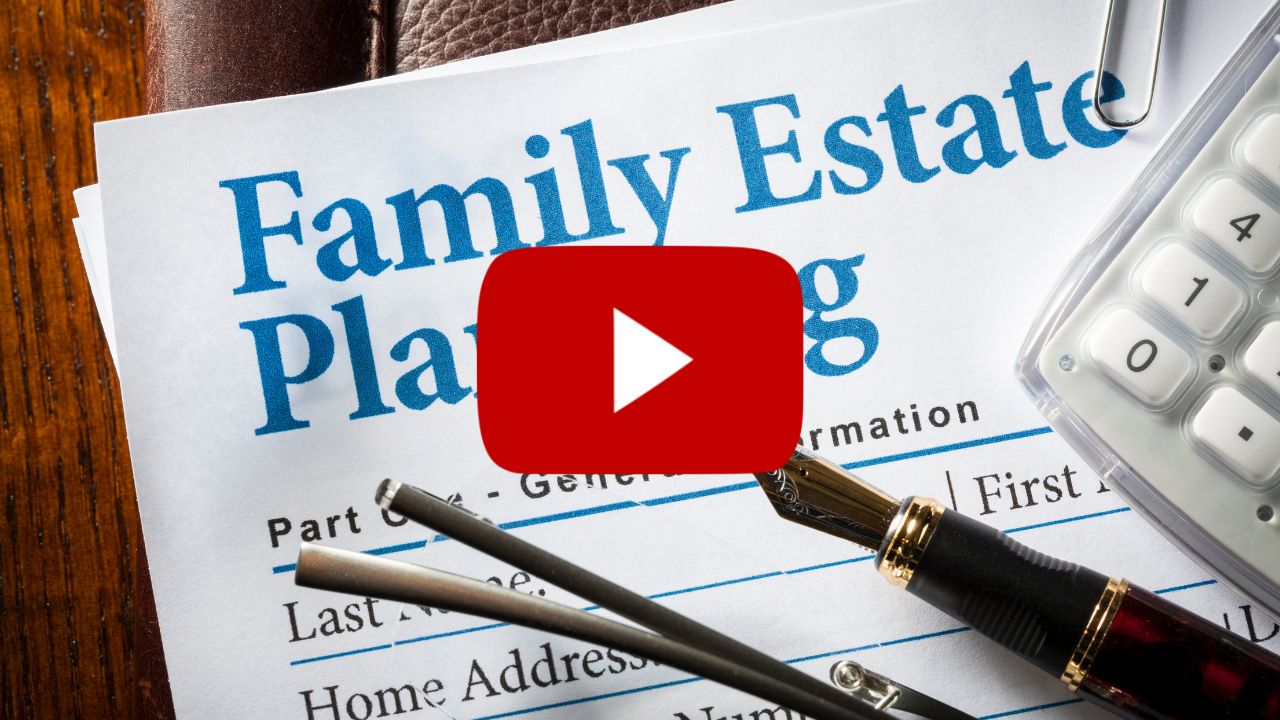What are the documents we recommend as part of basic estate planning? This article talks about those documents and what they do. Call or text us at 800-929-1725 for an appointment or send us an email using our contact form.
Basic Estate Planning Tip – Use a Statutory Durable Power of Attorney to Avoid the Need for a Guardianship
I want to talk a little bit about the documents other than the will that are included in that estate planning package. There are four of them. The first is what’s called a statutory durable power of attorney. This document’s important, and it’s important for a reason that most people kind of know but don’t think about, and that’s that a will is only applicable after you’re gone. With today’s medicine being as good as it is, the chances are that there will be a time in your life that you will be incapacitated medically and yet will continue to be living. You may end up recovering and being in perfect health thereafter or it may be a long slow decline. But in either case, what you want to avoid, and certainly ones you want to help your loved ones avoid, is a necessity of a guardianship for yourself.
A guardianship is a legal proceeding and it’s a very cumbersome and expensive legal proceeding where you are declared to be incompetent in some way. Now that is a public record finding that I personally would never want to be made. So how do we avoid this? How do we avoid the expensive, the oversight of the courts, and even some public finding that you are incompetent? Well it’s easy, fortunately. We have a statutory durable power of attorney put into place. That way you can designate a person to handle your affairs if you can’t, as long as an alternate and even a second alternate, which we would recommend. In that situation, there won’t need to be any finding publicly that you have lost capacity or are having troubles in any way. You’ll simply be able to have persons whom you trust help you in making those decisions when you can’t.
That person typically is going to be doing the same job that an executor would do, but remember, as we discussed, a will and an executor is only authorized after you’re gone. So this helps us to fill that gap in situations which are more and more things that folks have to deal with.
Basic Estate Planning Tip – Use a Medical Power of Attorney to Avoid Guardianship
A medical power of attorney is a similar document, but it does pretty much what it says. It allows someone to make medical decisions for you when you can’t. Again, typically a spouse would be the first choice for this medical power of attorney, followed by adult children if you have them or siblings, parents, that type of situation.
Basic Estate Planning Tip – Have an Advance Directive
The next document we usually talk about is called an advance directive. Some people call it DNR or do not resuscitate order. And basically it is a decision that you’re making today, while you’re thinking about it and before you’ve lost any capacity, as to how do I want to have my life handled when I get to a point where either A, I’ve got a terminal condition of which the prognosis is not good, or B, I’m in a situation where I’m being kept alive artificially in some way. In either of those situations or both of those situations, you can make some decisions today, those hard decisions that you won’t have to leave to your medical power of attorney. These are hard decisions for families to make. They’re the kind of things that no one wants to be responsible for.
So this allows you to take that responsibility on your own, make this decision today so that you can have all of those issues resolved. More likely than not, if you’re checking into a hospital for some type of elective surgery, these days they will ask you about several of these documents we’re talking about, including that one. They may recommend that you fill that out.
The rules have changed over time and more and more often, these are not documents that they will be able to provide to you at the hospital. This way we can make sure that you’ve got ’em handled, both electronically and paper format, before you ever get to the hospital.
Basic Estate Planning Tip – Have a HIPAA Authorization
The final document that we prepare is a document called HIPAA authorization. HIPAA is a federal regulation that deals with the confidentiality of health-related matters, including both insurance and medical records. Basically we can make sure that your loved ones will have access to diagnoses and be able to talk with your doctors. And I can tell you from personal experience, without one of these, you will not be in a situation to have communications with a doctor or a medical provider about treatment to anyone other than your spouse, not a sibling, not a parent, not a child, at least an adult child. And so basically this allows us to kind of close that circle, make sure the people that need that information have it available at their fingertips.
These are all things that we can put together and do put together as part of our basic estate planning package. It basically is a two-step process. We come in, evaluate the people and the situation. We then coordinate through email, getting some information that we need, and then we kind of come in and finalize the whole process by having execution of the documents here at our offices in Fulshear.
It’s fast, it’s easy, it’s professional, and the rate is essentially the same as if you tried to do this on your own. Don’t be that person. Come in and see us. Set up an appointment today to come in and talk with us and let us do our best to help you complete that basic estate planning procedure, thank you.
Call us at 800-929-1725 for our Basic Estate Planning Package for Couples offer! We have four offices in three counties across Southeast Texas. Our offices are in Wharton in Wharton County, Fulshear and Richmond in Fort Bend County, and Bay City in Matagorda County.





